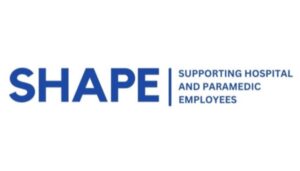
Nurses play a unique role in our healthcare systems. They are the people who keep our healthcare systems together and allow so many patients to be treated and taken care of in a timely manner.
Nurses in the UK
There are approximately 704,520 nurses registered in the UK as of March 2022. However, this number has likely changed with the increase in rates of resignation in the UK over the past 2 years. Reasons such as wanting to achieve better pay and work-life balance, and experiencing high stress and poor mental health outcomes, have contributed to higher turnovers of nursing staff in the NHS. It is therefore essential to find ways to support our nurses to allow our healthcare systems to stay alive and thriving.
Impact of COVID-19
The COVID-19 pandemic has also changed our healthcare systems placing higher pressures and workloads on our nurses, particularly within the NHS.
It is evident that the efforts made by our nurses in helping to treat so many patients during the COVID-19 pandemic and beyond have helped to save so many lives; however, for many nurses this has taken a toll on their own mental health.
Posttraumatic stress disorder and major depressive disorder in healthcare workers
Posttraumatic stress disorder (PTSD) and major depressive disorder are two mental health conditions that are common within the healthcare worker population due to factors such as being regularly exposed to traumatic events at work, experiencing earlier trauma, working longer hours and higher rates of burnout, and moral injury.
The impact of COVID-19 has further increased the risk of mental ill health in UK healthcare workers with a UK national survey conducted in 2020 finding 28.1% of healthcare workers were above the cut-off for high depression and 14.6% were above the cut-off for high PTSD.
Studies conducted during the COVID-19 pandemic have shown that nurses were more susceptible to developing PTSD and major depressive disorder due to factors such as demoralization, receiving less organisational support, burnout, and being more susceptible to vicarious trauma.
A solution: creating a tailored mental health intervention.
Compared to the general public, nurses are a unique population with their own needs, lifestyles and mental health requirements. On average, 63% of nurses working in care homes and 41% of nurses working in NHS hospital settings work 12-hour shifts. Nurses’ time is therefore precious and committing to a 1-hour therapy session each week may not be feasible for many. It therefore makes sense to develop an evidence-based intervention that is flexible, adaptable, and tailored to their needs to support them to continue doing the work that they love in a safe and healthy fashion.

SHAPE (formally known as Supporting Hospital and Paramedic Employees), originally funded by the University of Oxford COVID Research Response Fund, is a brief, accessible, cognitive behavioral intervention tailored towards healthcare staff, such as nurses. SHAPE targets cognitive and behavioral processes that maintain PTSD and major depression, specifically rumination, unwanted memories and avoidance.
SHAPE is designed specifically for healthcare workers as the coaching takes place over the telephone and each well-being session lasts approximately 30 minutes, making it more accommodating to healthcare workers busy lives and longer shifts as calls could be done during breaks. SHAPE coaching also focuses on the here and now, assisting healthcare workers to resolve any symptoms that are currently affecting their work and personal lives to ensure that they can perform their roles to the best of their ability and enjoy a better quality of life.
So far SHAPE has reached over 300 healthcare workers around the UK. Our pilot work has demonstrated that SHAPE coaching achieved clinically significant change in PTSD and depression symptoms in healthcare workers within 6 weeks of treatment (one call per week) compared to little change achieved during a 3-week monitoring phase.

“Work-related stress has been at an all-time high for me and my peers due to the COVID-19 pandemic. Fortunately, though, my weekly calls with my well-being coach have mitigated that stress significantly. For this, I am eternally grateful. I feel very lucky to have had this support.”
– A paramedic who had SHAPE over 6 weeks.
We are currently running a randomized controlled trial of SHAPE to ensure that the clinical improvements observed are associated with the intervention itself, instead of the passage of time.
We hope that if the trial shows promising results, SHAPE can be distributed more widely across the UK, and to other parts of the world, and reach even more healthcare workers and nurses.
In line with International Nursing Day’s four key themes, SHAPE aims to invest in and protect our healthcare workers by valuing and respecting their mental health. We hope that SHAPE can be offered as an alternative, more tailored solution to help many nurses get the support they need for PTSD and major depression.
Funding
SHAPE is funded by the National Institute of Health Research (NIHR) Applied Research Council (ARC) Oxford and Thames Valley and supported by the Oxford Health NIHR Biomedical Research Centre.
Comments